
Date: 2026-02-06 Page is: DBtxt003.php txt00003313
Religion
Islam ... and Islamophobia
There are extremists who seek to make religion a basis for bigorty and hate ... but in the bigger scheme of things it is only a small number. Sadly they can still do a lot of damage.
Burgess COMMENTARY
Peter Burgess
STOP-THE-CLASH ... Who's afraid of Muslim Rage?
A US magazine cover (below) screams out the general media slant of the last two weeks: the Muslim world is burning with anti-western anger over an Islamophobic film, with hordes of violent protesters on the streets threatening us all ... but is it really?
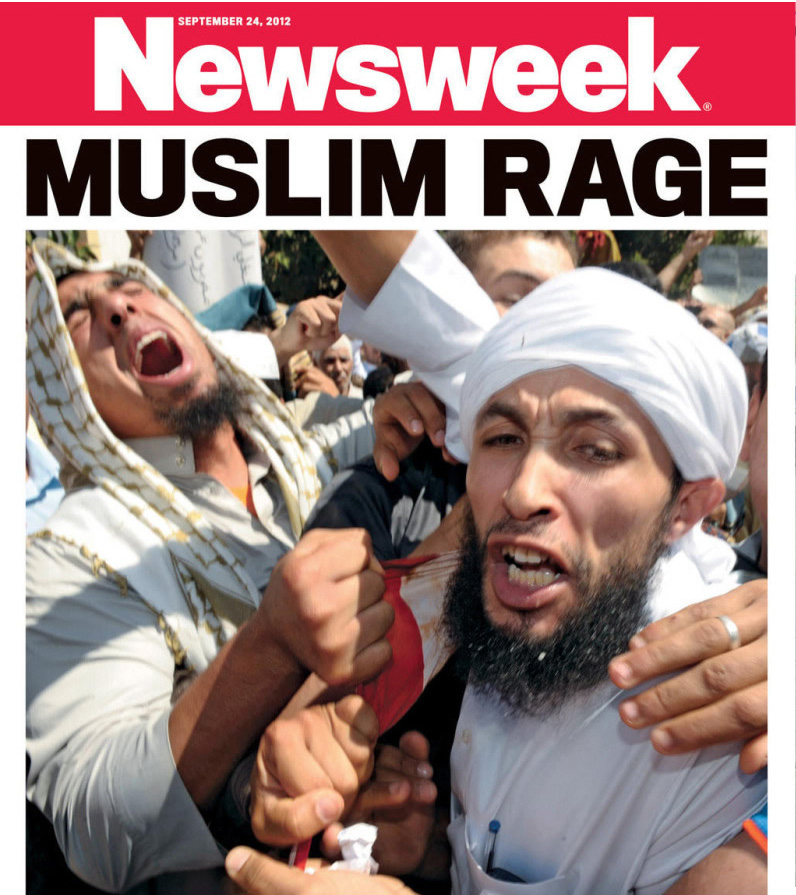
Citizens and new media are responding, and Gawker has brilliantly satirised the hype with alternative images of 'Muslim Rage':
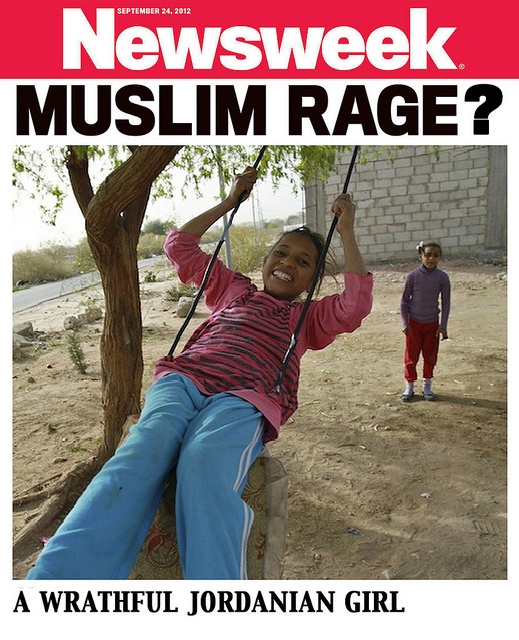
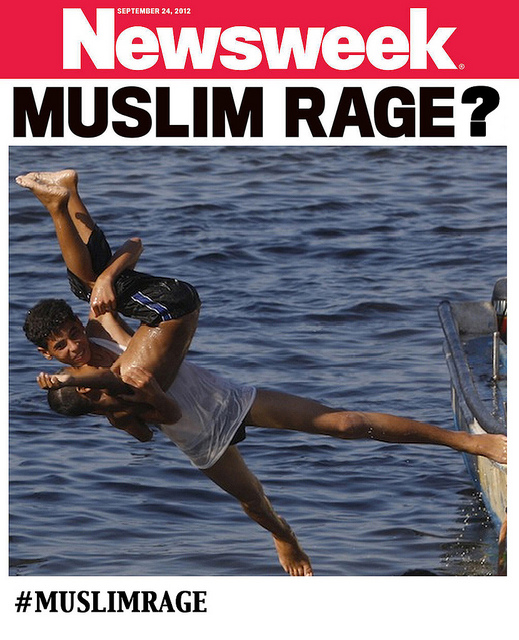
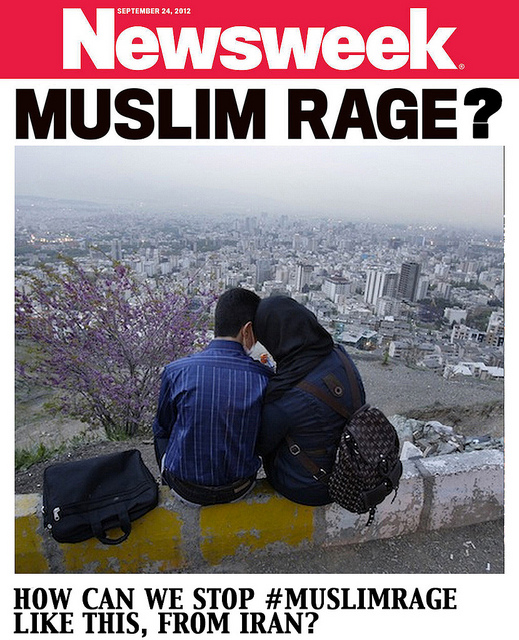
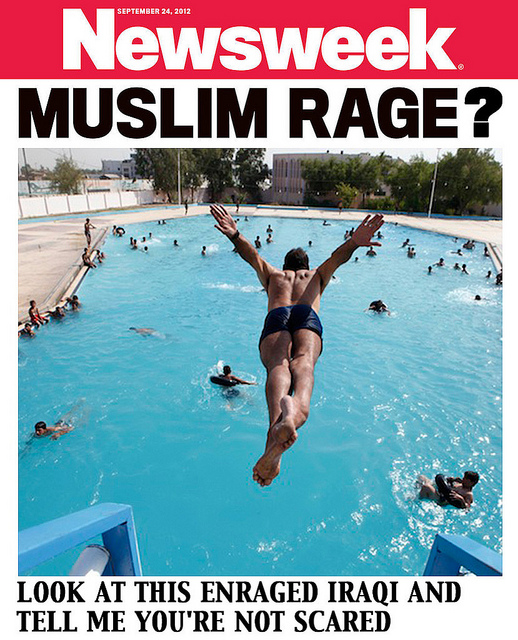
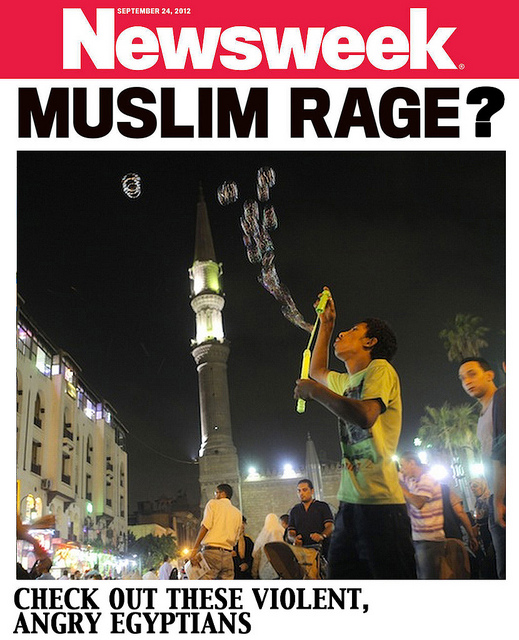
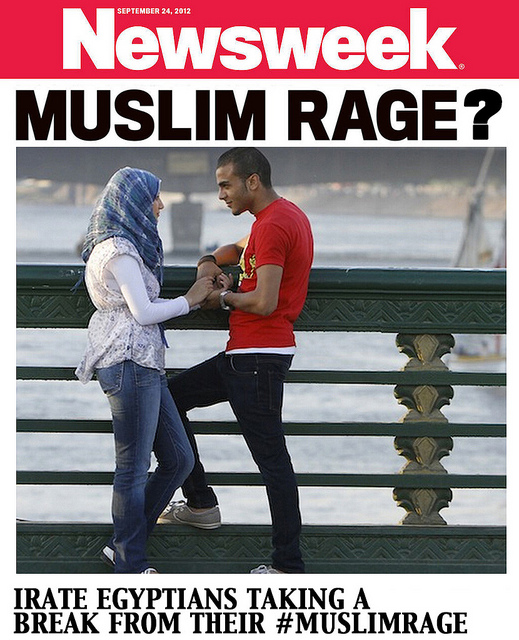
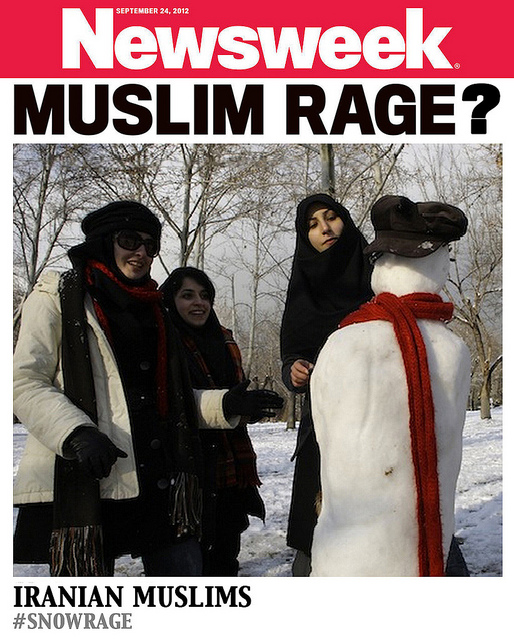
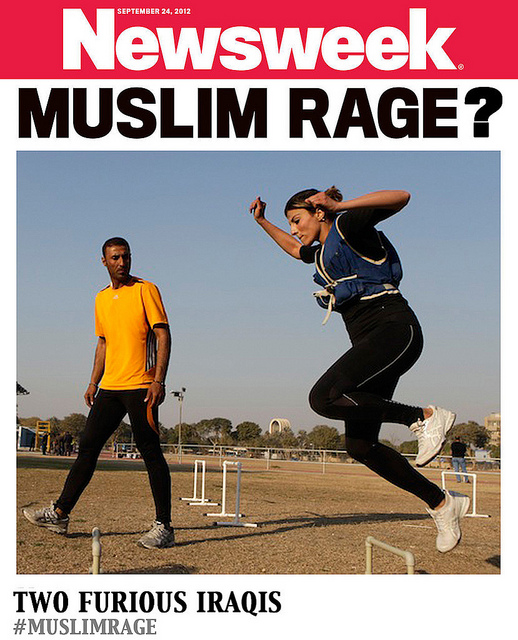
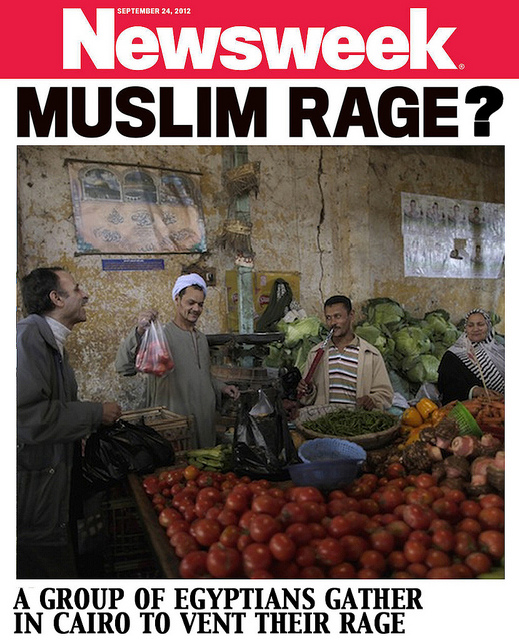
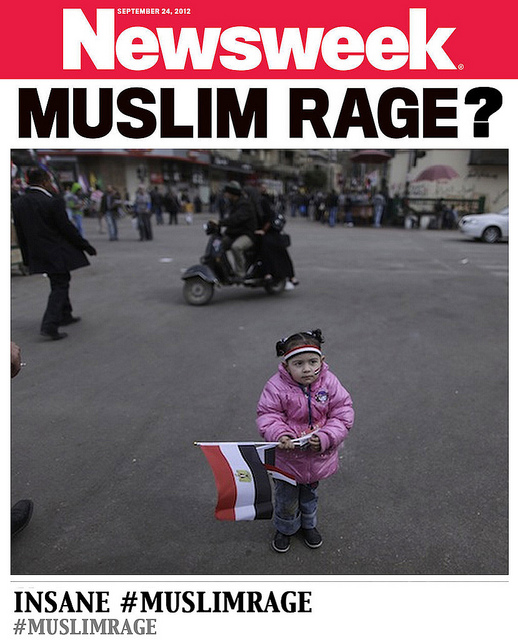
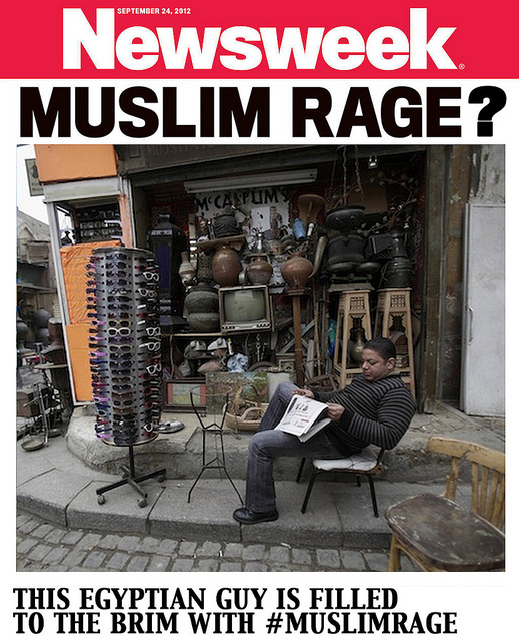
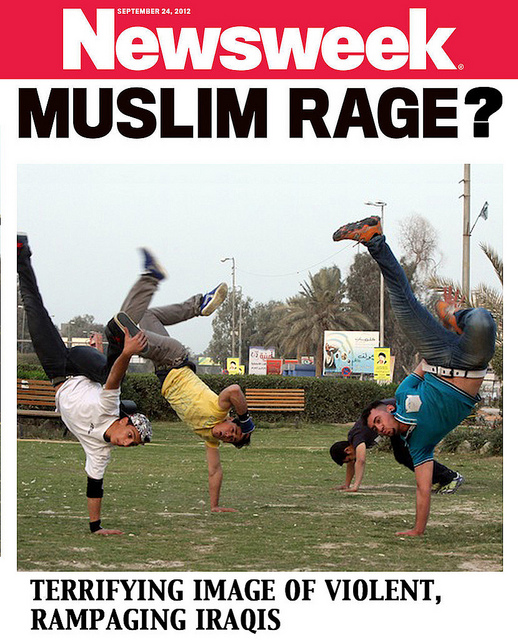
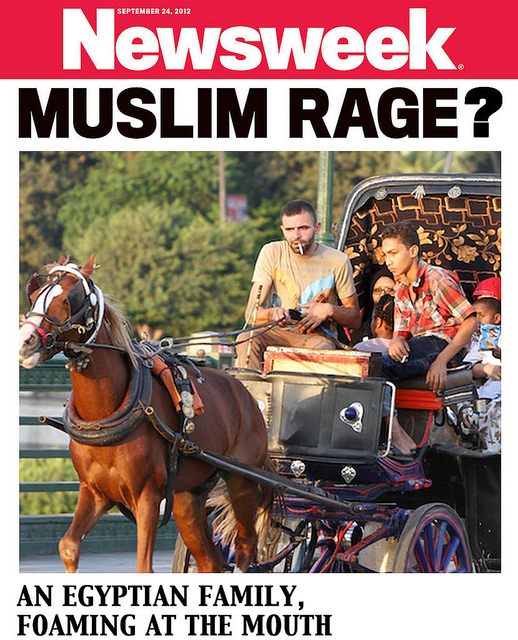
When Newsweek asked readers to tweet their own stories about #MuslimRage, many thousands did, hilariously:




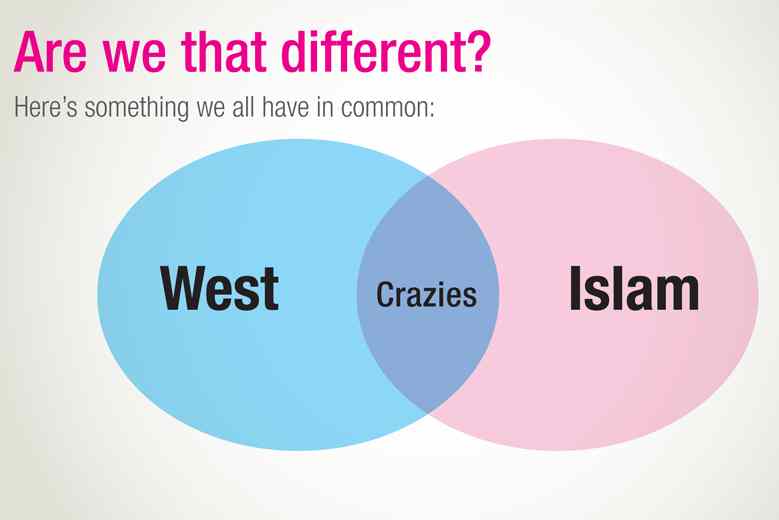
Seven things you may have missed in the 'Rage':
Like everyone else, many Muslims find the 13 minute Islamophobic video 'Innocence of Muslims' trashy and offensive. Protests have spread quickly, tapping into understandable and lasting grievances about neo-colonialist US and western foreign policy in the Middle East, as well as religious sensitivities about depictions of the Prophet Muhammad. But the news coverage often obscures some important points:
- Early estimates put participation in anti-film protests at between 0.001 and 0.007% of the world's 1.5 billion Muslims – a tiny fraction of those who marched for democracy in the Arab spring.
- The vast majority of protesters have been peaceful. The breaches of foreign embassies were almost all organised or fuelled by elements of the Salafist movement, a radical Islamist group that is most concerned with undermining more popular moderate Islamist groups.
- Top Libyan and US officials are divided over whether the killing of the US ambassador to Libya was likely pre-planned to coincide with 9/11, and therefore not connected to the film.
- Apart from attacks by radical militant groups in Libya and Afghanistan, a survey of news reports on 20 September suggested that actual protesters had killed a total of zero people. The deaths cited by media were largely protesters killed by police.
- Pretty much every major leader, Muslim and western, has condemned the film, and pretty much every leader, Muslim and western, has condemned any violence that might be committed in response.
- The pope visited Lebanon at the height of the tension, and Hezbollah leaders attended his sermon, refrained from protesting the film until he left, and called for religious tolerance. Yes, this happened.
- After the attack in Benghazi, ordinary people turned out on the streets in Benghazi and Tripoli with signs, many of them in English, apologising and saying the violence did not represent them or their religion.
Muslim rage or Salafist strategy?
Meet Sheikh Khaled Abdullah, the Salafist TV host who peddled the film (Ted Nieter)
The 'Innocence of Muslims' was picked up and peddled with subtitles by far-right Salafists – radical followers of an Islamic movement long supported by Saudi Arabia. The film was a cheaply made, YouTube failure until an Egyptian Salafist TV host, Sheikh Khaled Abdullah (right) began promoting it to viewers on 8 September.
Most insulted Muslims ignored the film or protested peacefully, but the Salafists, with their signature black flags, were leading instigators of the more aggressive protests that breached embassies. Leaders of the Egyptian Salafist party attended the Cairo protest that broke into the US embassy.
Like the far-right in the US or Europe, the Salafist strategy is to drag public opinion rightwards by seizing on opportunities to fan radical anger and demonise ideological opponents. This approach resembles that of anti-Muslim US pastor Terry Jones (who first promoted the film in the west) and other western extremists. In both societies, however, the moderates far (far!) outnumber the extremists. A leading figure in Egypt's Muslim Brotherhood (the more powerful and popular political opponent of Egypt’s Salafists) wrote to the New York Times saying: 'We do not hold the American government or its citizens responsible for acts of the few that abuse the laws protecting freedom of expression'.
Good reporting
A lonely band of journalists and scholars have approached the protests with an intent to truly understand the forces behind them. Among them, Hisham Matar, who powerfully describes the sadness in Benghazi after J Christopher Stevens' killing, and Barnaby Phillips, who explores how Islamic conservatives manipulated the film to their advantage. Anthropologist Sarah Kendzior cautions against treating the Muslim world as a homogenous unit. And Professor Stanley Fish tackles a tough question: why many Muslims are so sensitive to unflattering depictions of Islam.
Sources: Newsweek, Gawker, Al Jazeera, Sky, Foreign Affairs, Washington Post, Kuwait Times, Avaaz, New York Times, Reuters, Guardian, Atlantic, TIME, New Yorker